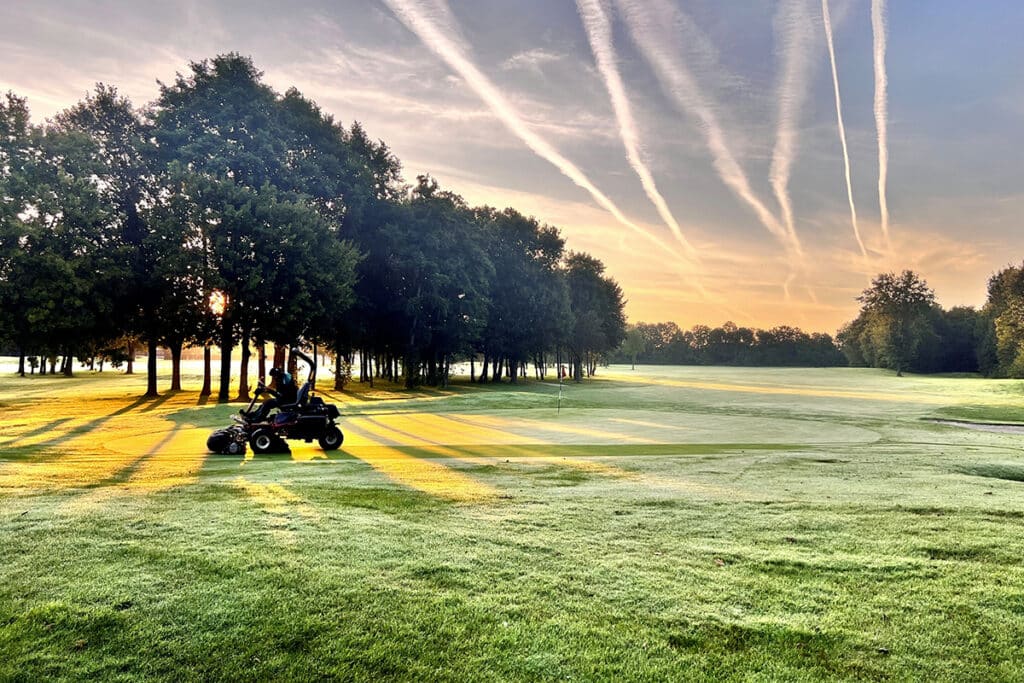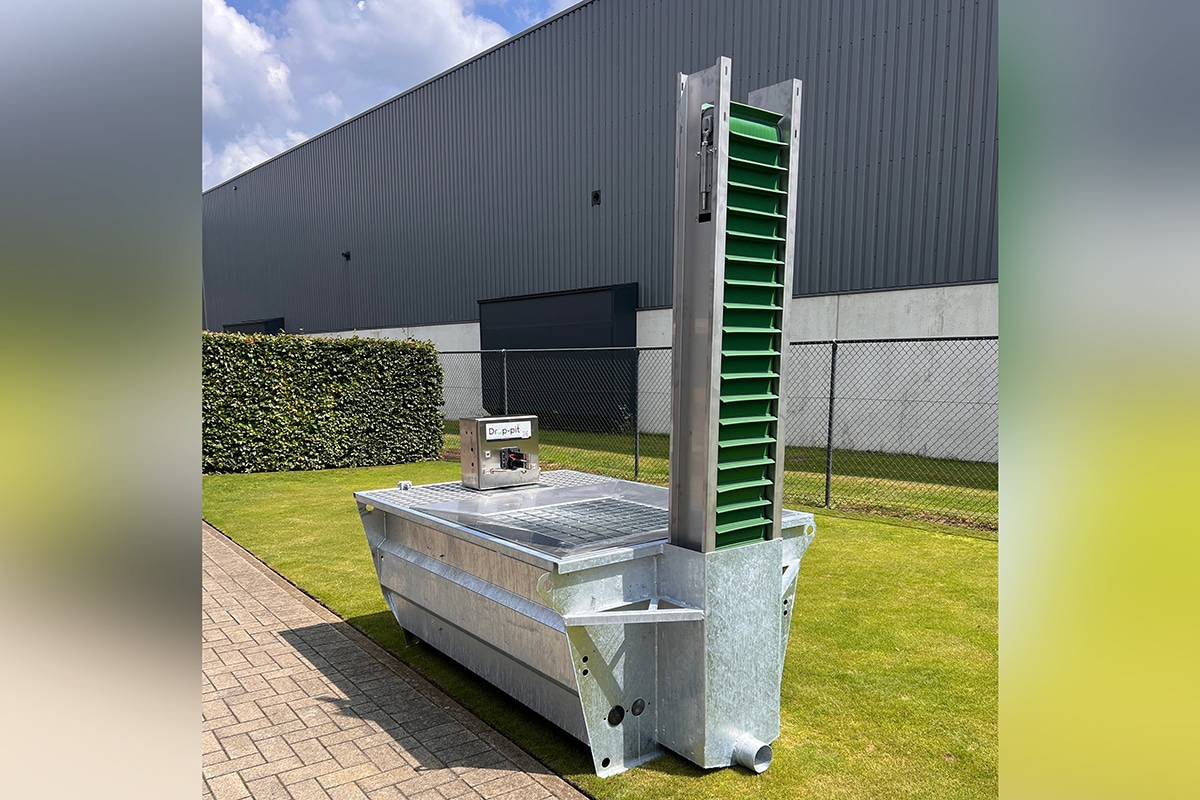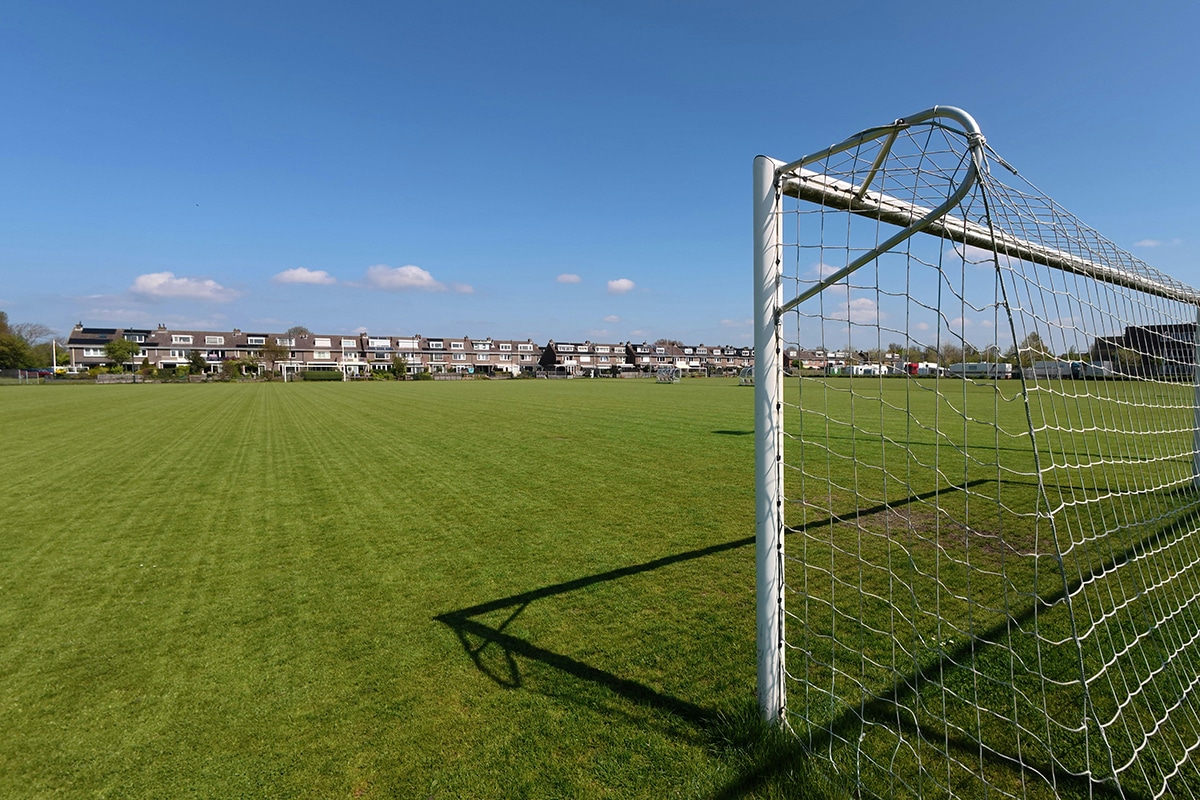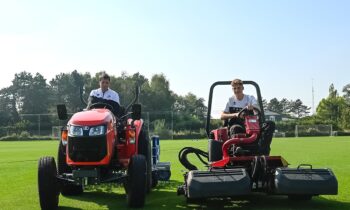
Pioneering in green management, with nature and never against it
Club in the spotlight - Brabant Golf
A stone's throw from Brussels Airport, where airplanes swoop over the fairways, lies one of Flanders' most progressive golf clubs. Brabantse Golf is not only a sporting oasis on the outskirts of the capital, but also a laboratory for ecological management. At the helm: Dimitri Moerenhout, head greenkeeper with vision, supported by his experienced predecessor Philippe Mallaerts, who continues to help set the course after his retirement as a consultant.
Founded forty years ago as a distinctly Flemish golf course, today the club boasts eighteen challenging holes on more than forty acres. "We challenge each other to keep raising the bar," Mallaerts says. "That double vision keeps the course sharp and future-proof."
Master and companion
"Philippe is my backup, my sounding board, my memory," Moerenhout says. "He knows the job inside out. I take charge now, but it's a luxury to be able to fall back on his experience on larger dossiers or when things get a little tense." Philippe also remains active in the sector: as vice president of GAB (Greenkeepers Association Belgium), he shares his knowledge through study days, workshops and training courses.

Technology as a loyal caddie
Innovation is daily practice here. Moerenhout clarifies, "I regularly measure the moisture content and the amount of salts in the soil, and also keep track of how many liters of rain have fallen. I look at that data together with what I see visually on the track. It's the combination of measuring and the tangible image that provides the right interpretation and appropriate actions."
The equipment fleet also received a green upgrade. An electric greens mower, quiet fairway mower and a fleet of battery-powered golf carts significantly reduce diesel consumption each year. Solar panels on the roof of our shed charge the batteries. "We need to start reducing CO2 emissions and focus on being as climate-neutral a golf club as possible," Moerenhout said.
Biodiversity under the runway
The runway is right under the approach route from Zaventem, but ecological thinking is given free rein here. Because the summers are getting drier, the showers heavier - and you can feel that on the course. Brabantse Golf responds to this with a smart system that connects both extremes: rainwater flows into wadis and a central basin. That holding basin, which actually belongs to the airport, is fully integrated into the course and supplies 100% of the irrigation water. Chemical crop protection systematically disappeared from the greens over the years. Biostimulants, wetting agents and resistant grass mixtures are taking over. "Zerotolerance is not a threat, but a challenge to work more efficiently," Mallaerts says.
For years, the ambitious golf club has had just about every sustainability certification in existence, including the GEO label and the Sustainability Compass. "The electrification and water plan were our biggest steps in CO2 reduction," it says. But the ambitions reach further: "We aim for more biodiversity on the course: butterflies, woodpeckers, insects, bats. Not working against, but with nature."

Molding young talent into craftsmanship
The industry is aging, the influx is stagnant. "Greenkeeping is a unique job, but few young people realize that," says Moerenhout. "We try to get them excited through schools, give them growth opportunities and let them take training courses. You have to invest time. A good greenkeeper is not born, you grow it."
Thanks to GAB, he also gets to inspire people outside the club. "We offer training courses on leadership, soil analysis, burnout prevention. Everything that the job demands today, but didn't exist before."
And tomorrow?
Where will Brabant Golf be in 2030? Mallaerts smiles: "With a smart drainage system that can handle extreme rain and a robust turf that survives long droughts. But above all: as a place where nature and play reinforce each other." Moerenhout
adds: "The future does not require a struggle with nature, but cooperation. That starts with the grass under your feet."




